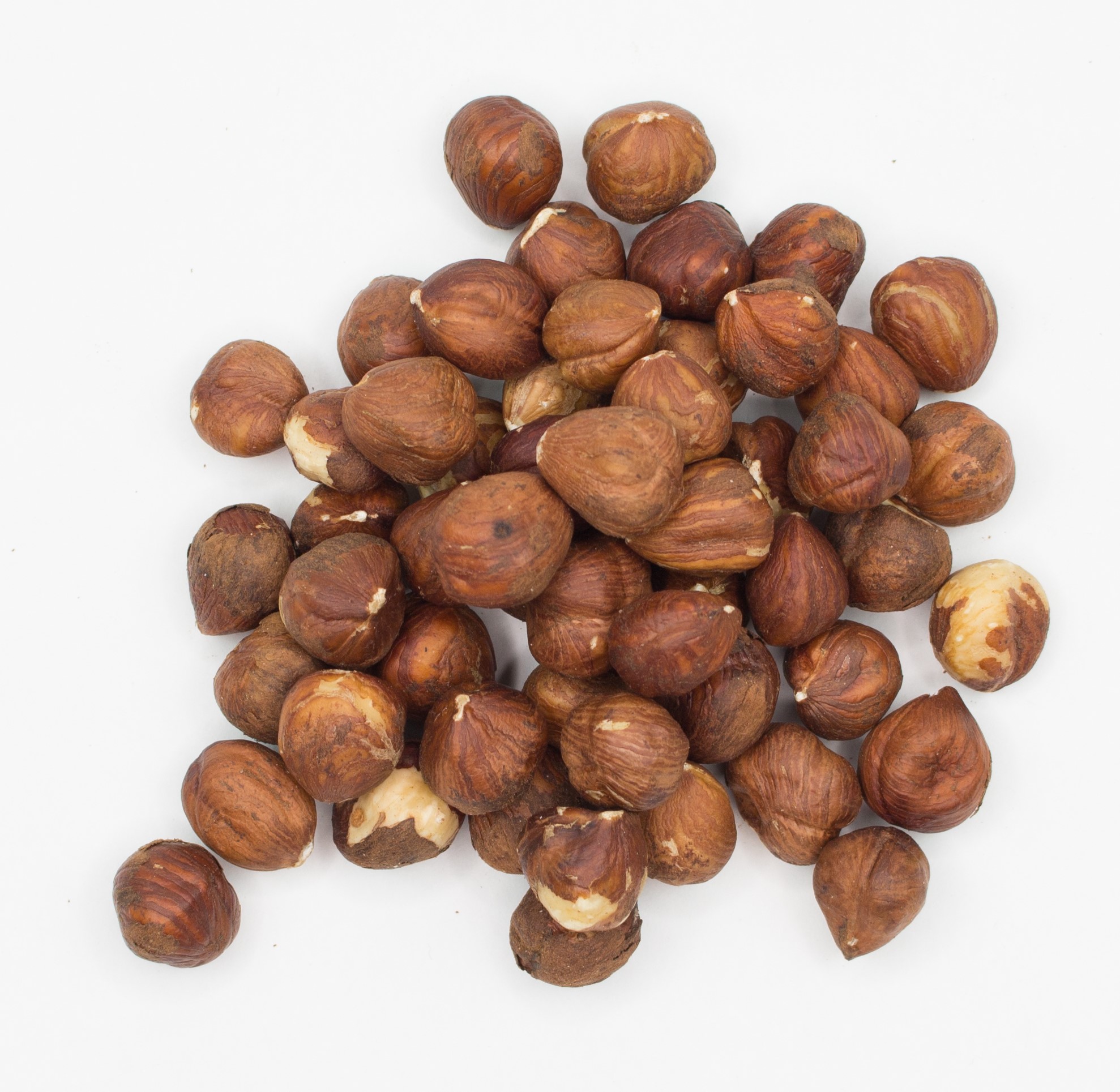Hazelnuts
Filberts / CobnutsThe hazelnut, also known as the filbert, is a type of nut that comes from the Corylus tree. It is mostly cultivated in Turkey, Italy, Spain and the United States.
Hazelnuts have a sweet flavor and can be eaten raw, roasted or ground into a paste.
Like other nuts, hazelnuts are rich in nutrients and have a high content of protein, fats, vitamins and minerals. Here are seven evidence-based health benefits of hazelnuts.
Please contact our office regarding size availability and details.
The products are roasted locally based on client requirements to maintain freshness and ensure the quality of the final product. The varieties of roasting currently available includes:
- Dry Roast
- Lightly Salted
- Salted
- BBQ
- Black Pepper

HEALTH BENEFIT
Hazelnuts also contain decent amounts of vitamin B6, folate, phosphorus, potassium and zinc.
Additionally, they are a rich source of mono- and polyunsaturated fats and contain a good amount of omega-6 and omega-9 fatty acids, such as oleic acid.
Furthermore, a one-ounce serving provides 2.7 grams of dietary fiber, which accounts for about 11% of the DV.
Hazelnuts provide significant amounts of antioxidants. The majority of the antioxidants present are concentrated in the skin of the nut. However, this antioxidant content could decrease after the roasting process.
SELECTION & STORAGE
There isn’t much difference between storing hazelnuts and other nuts. There are three places you can keep them, each with their pros and cons: pantry, fridge, or freezer.
Hazelnuts must be stored in a cool and dark place, away from heat sources. This way, you keep them from going rancid or stale for much longer. They should last about 3-4 months in the pantry and the shelf-life increases to 12 months or more in the fridge and/or freezer.
PREPARATION & SERVING METHOD
Hazelnuts are used in baking and desserts, confectionery to make praline, and also used in combination with chocolate for chocolate truffles and products such as chocolate bars, hazelnut cocoa spread.
SAFETY PROFILE
Hazelnut is LIKELY SAFE for most people in food amounts. But some people are allergic to hazelnuts and have had serious allergic reactions including life-threatening breathing problems (anaphylaxis).
People who are allergic to peanuts, cashews, walnuts, mugwort pollen, Brazil nut, birch pollen, and macadamia nut might also be allergic to hazelnut.


